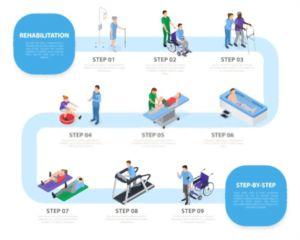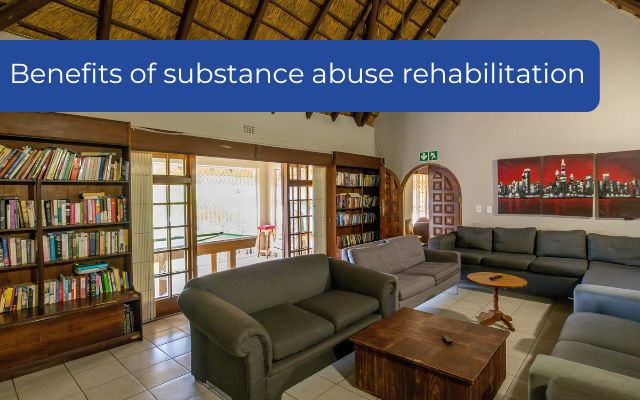What Does Narconon Africa Do?
What Does Narconon Africa Do?
Blog Article
6 Simple Techniques For Narconon Africa
Table of ContentsWhat Does Narconon Africa Mean?Some Ideas on Narconon Africa You Need To KnowNarconon Africa Fundamentals ExplainedA Biased View of Narconon AfricaThe Basic Principles Of Narconon Africa Getting The Narconon Africa To WorkAn Unbiased View of Narconon Africa
In a series of papers with Manudeep Bhuller and Katrine V. Lken, we conquer these data challenges and the nonrandomness of jail time, using new understandings right into how imprisonment impacts relapse, work, kids, and criminal networks - Rehabilitation facility Joburg. Figure 1 Our work researches the results of imprisonment in Norway, a setup with two crucial advantagesWe can additionally link this info to other relative, consisting of kids and siblings. Moreover, we know on co-offending that permits us to map out criminal networks for observed crimes. Second, we can leverage the arbitrary task of criminal situations to judges that differ in their propensities to send out offenders to prison.
Some courts send defendants to jail at a high rate, while others are much more forgiving. We determine a judge's stringency as the typical imprisonment price for all other instances a judge deals with, after regulating for court and year set impacts, which is the level of random assignment. This quasi-random task of judge stringency can be utilized as a tool for incarceration, as it highly predicts the court's decision in the existing case, yet is uncorrelated with other situation characteristics both by layout and empirically.
4 Easy Facts About Narconon Africa Described
Qualities of prisoners, including demographics and criminal offense categories, are broadly similar in Norway and other countries, including the United States, with the exemptions that the US homicide rate is much greater, and race plays a bigger function there. What attracts attention as various, specifically compared to the USA, is the prison system.
Figure 2In Norway, the average time spent behind bars is a little over 6 months, which is comparable to most other Western European countries. This contrasts with average US jail time of practically 3 years, which remains in huge part the reason the USA is an outlier in its incarceration rate compared to the rest of the globe [Number 1]
How Narconon Africa can Save You Time, Stress, and Money.
This provides far more splitting up between small and solidified bad guys than exists in the USA. There is no overcrowding in Norwegian jails and better individual safety, with each detainee being assigned to their own cell and a greater inmate-to-staff ratio than in the USA (https://telegra.ph/Narconon-Africa--Bringing-Effective-Solutions-and-Hope-to-an-Entire-Continent-with-the-Opening-of-a-New-Center-06-05). Prisons in Norway also provide well-funded education and learning, drug treatment, mental wellness, and work training programs
Our research study on the impacts of imprisonment on the culprit, utilizing the arbitrary assignment of judges as a tool, yields 3 essential searchings for. Initially, jail time inhibits better criminal behavior. We find that imprisonment reduces the probability that a person will reoffend within five years by 27 percent points and minimizes the matching number of criminal charges per individual by 10 charges.
The Single Strategy To Use For Narconon Africa
We discover substantial reductions in reoffending likelihoods and advancing charged criminal offenses even after accuseds are launched from prison. Our 2nd result is that predisposition as a result of choice on unobservable specific attributes, if disregarded, causes the erroneous conclusion that time spent behind bars is criminogenic. If we merely contrast criminal offenders imprisoned versus those not imprisoned, we find positive associations between imprisonment and succeeding crime.
This stands in comparison to our analysis based upon the random job of courts, which finds an opposite-signed outcome. Third, the reduction in criminal activity is driven by individuals that were not functioning before incarceration. Amongst these individuals, jail time boosts participation in programs routed at enhancing employability and decreasing recidivism, and this eventually increases work and incomes while preventing criminal actions.

Jail time triggers a 34 portion factor rise in involvement in work training programs for the previously nonemployed, and within five years their employment rate boosts by 40 percentage points. At the exact same time, the probability of reoffending within five years is cut by 46 percentage points, and there is a decrease of 22 in the average number of criminal costs.
The smart Trick of Narconon Africa That Nobody is Talking About

A plausible description for the difference is that Norway's prison system differs considerably, both in regards to prison-term size and jail conditions, from the United States prison system. While comprehending the results of incarceration on the wrongdoer is an important very first step, capturing spillover impacts is additionally essential for reviewing criminal justice policy and creating reliable jail systems.
What Does Narconon Africa Mean?

Regular least squares approximates reveal that kids of incarcerated fathers are 1 percent point more most likely to be charged with a crime, about a mean of 13 percent, and reveal no impact on school grades. Utilizing our judge stringency instrument, we locate no statistical proof that a dad's imprisonment impacts a youngster's very own crime or school qualities, yet we are not able to rule out modest-sized effects.
Some Ideas on Narconon Africa You Should Know
We define criminal teams based on network web links to prior criminal cases. Our analysis yields three main findings. When a criminal network member is jailed, their peers' chance of being charged with a future crime decreases by 51 percentage factors over the following four years. Furthermore, having an older brother incarcerated reduces the chance his younger brother will certainly be billed with a crime by 32 percentage factors over the following four years.
Report this page